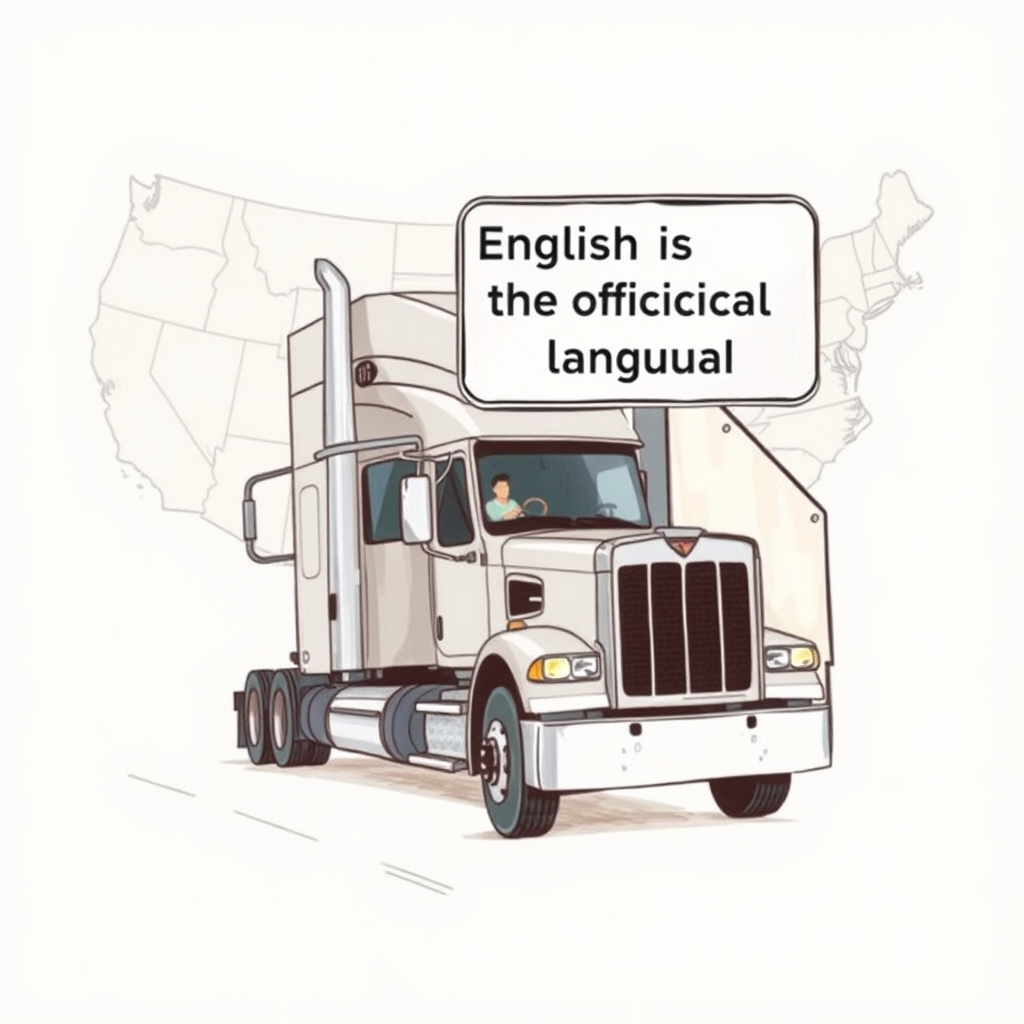Trump Mandates English for Truck Drivers—MAGA Cheers

A proposed executive order from President Donald Trump requiring commercial truck drivers to demonstrate English language proficiency is drawing strong reactions, particularly from his supporters. The move, framed by the administration as a safety measure, has ignited fervent discussion on social media platforms. Trump reportedly intends to sign the order, asserting that English is a “non-negotiable safety requirement” for professional drivers, building on his recent designation of English as the “official language of the United States.”
Reactions from Trump’s base, often identified as “MAGA” supporters, are overwhelmingly positive. Numerous users expressed relief and approval, citing concerns about driver competency and road safety. Posts shared online included sentiments like “This is such a big deal!” and calls for stricter enforcement of existing regulations. Some users shared anecdotal experiences, claiming to have witnessed or nearly experienced accidents involving drivers with limited English proficiency. Others celebrated the move as a reaffirmation of American identity.
However, the discussion also reveals a degree of confusion and acknowledgment that a requirement for English proficiency isn’t entirely new. Several commenters pointed out that existing Federal Motor Carrier regulations already include an English language component – specifically, the ability to read English as part of the DOT physical requirement – but that consistent enforcement has been lacking.
This raises a critical question: is this executive order a genuine attempt to enhance safety, or a largely symbolic gesture capitalizing on existing rules? While the intention to prioritize safety is laudable, simply reiterating a requirement without addressing the underlying issues of lax enforcement and potential loopholes within the licensing process feels insufficient.
Furthermore, the conversation expanded to include concerns about rideshare drivers, with some users suggesting the English language requirement should be extended to Lyft and Uber drivers as well, citing instances of passengers experiencing difficulties with drivers unable to communicate effectively.
Ultimately, the debate highlights a complex intersection of safety concerns, immigration policy, and the ongoing cultural anxieties surrounding language and national identity. While the enthusiasm from Trump’s supporters is clear, the effectiveness of this executive order will likely hinge on its implementation and whether it addresses the systemic issues already present within the trucking industry.